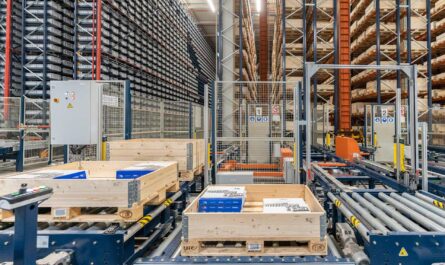Advanced farming involves the implementation of modern technologies and equipment to increase farm productivity and quality yields. It utilizes automation, control systems, and information technologies to help farmers monitor and analyze various agricultural processes. Advanced farming equipment such as GPS (Global Positioning System), DSS (decision support system), remote sensing, GIS (Geographic Information System), and variable rate technologies help optimize inputs and increase productivity. Farmers are increasingly adopting automated farming equipment such as autonomous tractors and drones to monitor soil conditions and live stock health which has reduced manual labor and labor costs. This has led to consistentproduction and higher yields within short period of time.
The global Advanced Farming Market is estimated to be valued at US$ 11.18 Bn in 2023 and is expected to exhibit a CAGR of 7.9% over the forecast period 2023 to 2031, as highlighted in a new report published by Coherent Market Insights.
Market Dynamics
Increasing adoption of automated technology is driving the growth of the advanced farming market. As mentioned in the heading, farmers are increasingly adopting automated farming equipment to improve operational efficiency and maximize agricultural output. Autonomous tractors can work around the clock with minimum human intervention. Similarly, drones and sensors help monitor soil moisture, detect diseases and analyze crop health remotely. This has reduced cost of farming and improved productivity. Another factor fueling the market growth is government support through subsides and funding for deploying modern technologies in agriculture. For instance, the US government provides funds under Farm bill programmes to encourage precision agriculture and digitization of farms. The focus on reducing dependency on manual labor and implementing industrial agriculture is also propelling the advanced farming market growth during the forecast period.
Segment Analysis
The Advanced Farming Market Demand is dominated by the Precision Farming segment which holds around 60% share owing to its benefits like optimized usage of inputs like seeds, water, fertilizers which help increase yields and reduce costs for the farmers. Precision farming uses technologies like GPS, GIS, robotic milking systems, sensors, variable rate technology and drone imagery to monitor crops and automate agricultural equipment for superior monitoring and management of fields and livestock.
PEST Analysis
Political: Governments across nations are promoting usage of advanced technologies in agriculture to boost farm yields and production through subsidies and policy support.
Economic: Rising population and demand for food is driving growth in advanced farming technologies to optimize resource usage and increase agricultural productivity on existing farmland.
Social: Technologies are helping address issues of labor shortage in agriculture and enabling mechanization and automation of processes.
Technological: Usage of IoT, AI, drones, robotics, remote sensing and automation is helping drive efficiency and sustainability in agriculture through more effective soil, crop and livestock monitoring and management.
Key Takeaways
The global Advanced Farming market is expected to witness high growth over the forecast period driven by growing global population and rising demand for food. The global Advanced Farming Market is estimated to be valued at US$ 11.18 Bn in 2023 and is expected to exhibit a CAGR of 7.9% over the forecast period 2023 to 2031.
Regional analysis: North America dominates currently led by U.S. owing to large scale farms and early adoption of new technologies. However Asia Pacific is expected to emerge as the fastest growing region led by countries like India and China due to huge agricultural base and government initiatives for smart agriculture.
Key players operating in the advanced farming are Walmart, Amazon, Costco, Target, Best Buy, Home Depot, Kroger, Lowe’s, Albertsons, Publix, Walgreens Boots Alliance, CVS Health, 7-Eleven, Rite Aid, Ace Hardware, Menards, Dick’s Sporting Goods, L Brands, Nordstrom, Macy’s. Key players like Walmart, Amazon are focusing on expansion of their B2B offerings for agricultural inputs and services to tap growth in the sector.
*Note:
1. Source: Coherent Market Insights, Public sources, Desk research
2. We have leveraged AI tools to mine information and compile it



